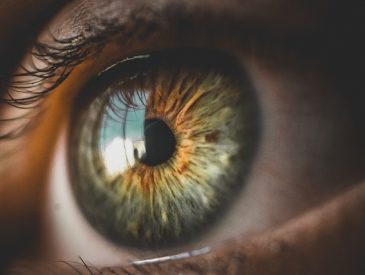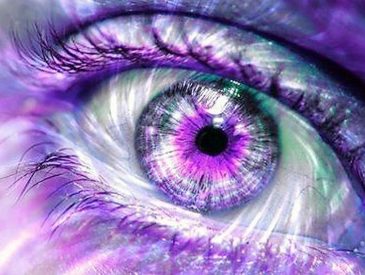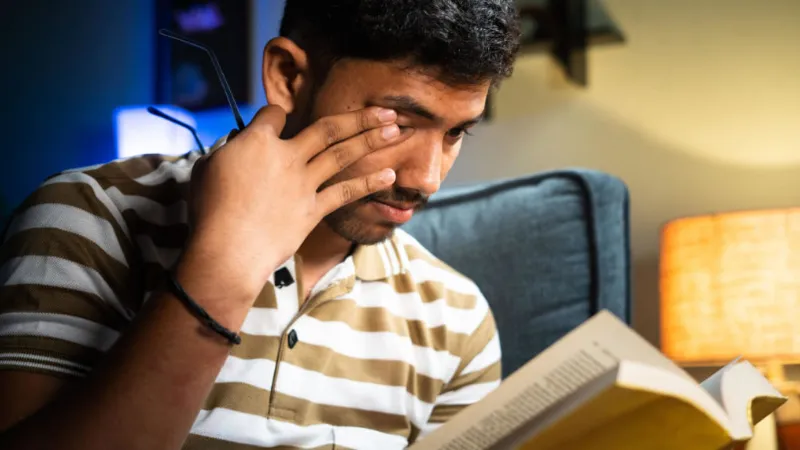In fact, when your mood changes, your eyes cannot completely change color, such as from blue to green or from brown to blue. On the contrary, when your mood changes, the size of your pupils will also change, and accordingly, the color of your eyes will also change. But, why your eyes can change color?
With some emotions, the pupil enlarges or contracts, which alters the color of the iris and the color of the eyes. You’ve probably heard that when you’re angry, your eyes change color, and it’s probably true. Age-related eye color changes are also possible. Normally, they become a little darker.
Continue reading.
Table of Contents
Can Your Eyes Change Color With Your Mood?
Your eyes cannot completely change color like from blue to green or brown to blue when your mood changes. Instead, the size of your pupil changes when your mood changes, and in turn, the hue of your eyes change.
As you experience happiness, sadness, anger, excitement, and fear, your body releases oxytocin, a hormone that causes your pupils to change in size.
As a result, the pigments in your iris spread apart or compress, giving your eye color a different shade.
Moreover, depending on what you are feeling, your facial expression also changes. A furrowed brow when you are angry can make your eyes squinty, so a smaller amount of light is let in. Your iris, a muscle, contracts and expands to regulate the size of your pupil. The pupil then expands, and your eyes may appear darker in color.
When your mood changes, your eyes cannot completely change color from blue to green or from brown to blue.
Also, if your eyes have red, dilated blood vessels because you are so angry, your eyes may appear bluer or greener because of the contrast.
When you are in love or ecstatic, your eyes open wider, and more light is let in. The size of your pupil is subsequently once more controlled by your iris. When you open your eyes wider, your pupil contracts, and your eyes appear brighter in color. The smaller your pupil, the more of your irises (also known as your eye color) are visible to others.
If your eyes are tearing because you are sad, your eye color will also slightly alter in tone.
However, once your emotions return to “normal,” the color of your eyes will return to their normal color.
Why Your Eyes Can Change Color ?
Your mood isn’t the only reason why your eye color may “change.” Other influencers are:
Age
Most babies are born with a “neutral” eye color – it’s usually gray or light blue. And then as the child gets older, their eye color darkens (because melanin levels increase) and settles into their true color.
For some people and for unknown reasons, their melanin levels continue to increase throughout their life. So, as they age, their eye color continues to darken.
A small portion of Caucasians experience a decrease in melanin levels, resulting in a lighter eye color as they age.
Genetics
A gene mutation is one of the most frequent reasons for a change in eye color.
Although genes are responsible for our eye color, other genes that suppress their effect can mask their effects.
However, occasionally, these genes become less active, which results in an unmasking effect and a different eye color than anticipated.
For instance, if one parent has blue eyes and the child is born with brown eyes, there must have been a gene mutation.
If the child has eyes that are different from those of both parents, the same thing may transpire.
These mutations can be benign, but they can also be linked to syndromes like roanoke congenital ichthyosis, piebaldism, or oculocutaneous albinism.
Overall, your eyes’ color is largely determined by genetics, but they typically don’t change much after that.
Diseases
Your eyes’ color can be altered by a variety of eye conditions.
The majority of them have an impact on the retina, a layer of nerve cells in the back of the eye that transform light energy into electrical impulses.
Retina yellowing is a symptom of erythropoietic protoporphyria, and pigmentation and thinning are a symptom of retinitis pigmentosa.
The most frequent complication of these illnesses is vision loss, which can be partial or total depending on the disease’s severity.
Blood vessels can be impacted by eye diseases, and they can alter the color of the eyes in addition to the retina.
Eye color changes may also indicate certain underlying medical conditions.
Jaundice, or yellowing of the eyes, or a change in the color of the sclera, or the white part of the eye, can be symptoms of liver disease.
Sclera with blue or grey undertones may indicate an iron deficiency.
High blood pressure may be indicated by blue eyes with red veins.
One or more diseases, such as erythroblastosis fetalis, toxoplasmosis, or rubella, may be detected by a sudden change in iris color.
Asking a doctor for advice is typically best if you notice any odd changes in the color of your eyes and are unsure of what is happening.
When it comes to your eyesight in particular, it’s better to be safe than sorry.
Mood and Emotions
Though not as dramatically as in comic books and cartoons, where characters’ eyes change color when they feel particular emotions, emotions can cause your eyes to change color.
However, when a person is feeling a particular emotion, such as sadness, rage, or happiness, their eyes’ color may slightly change.
The term “eye color associated mood shift” describes this phenomenon.
Although the cause is unclear, it has been hypothesized that variations in eye color are caused by changes in the retina’s size, which alter how light is reflected.
It’s thought that this effect is transitory.
You see, your retina also changes when you feel certain emotions like fear, anger, or happiness, just like it does with light.
Your eyes may appear differently as a result.
Exposure to the Sun
The more sun exposure you get, the more melanin is produced by your body. And your eye color can darken as a result.
Food
They say you are what you eat, and That probably applies to your eyes as well.
The food you eat can change the shade of your eye color.
Often, eating high-iron food can make your eye color appear brighter, while consuming fish can intensify the color of your eyes.
Regularly drinking chamomile or Uva Ursi tea causes your pupils to relax and makes your eyes appear warmer.
Eating organic honey and unroasted nuts can make your eye color lighter and brighter.

Light Exposure
I already touched on this a bit earlier, but even without a change in your mood, your eye color can change depending on the amount of light exposure on your eyes.
For example, your eye color will appear darker if you are in a room that isn’t brightly lit or there’s only a lamp on when it’s dark. The lack of light causes your irises to dilate your pupils to let more light in, and with the darkness of the pupil, your eye color looks darker too.
On the other hand, when you are outside in the sun or in a brightly lit room, your irises ensure your pupils contract to limit the amount of light. Your eyes appear a shade or two lighter with the smaller size pupils.
Environment
If you’ve ever been in a place with a lot of blue light, such as a swimming pool or close to a blue computer screen, you may have noticed that people with light eyes frequently have a blue tinge to their eyes.
The blue color is essentially just your eye reflecting it.
This causes your eyes to turn blue, and it can also occur when you stare at blue light, such as the blue light from a TV or computer screen, or when you look at blue light reflections, such as water.
When you leave the blue light or after briefly closing your eyes, this temporary effect goes away.
Makeup, Accessories, and Clothing
When my mom wears eyeliner or a blue shirt, I’ve noted how much bluer her blue-gray eyes appear. Clearly, her eye color is not changed by her makeup, accessories, or attire.
Your body releases oxytocin, a hormone that changes the size of your pupils, as you experience happiness, sadness, anger, excitement, and fear.
Instead, it’s just perception that a person’s eye color “changes” depending on what they wear or how they did their makeup. For instance, my mother’s blue shirt simply draws attention to the blue in her eyes.
A different hair color or the frame of your glasses can cause the same illusion. It’s how the light bounces off the object – the jacket, scarf, or hair eye color – and how it’s reflected into their eyes that “changes” their eye color.
Puberty
The hormones that control pigmentation undergo changes during puberty, and these changes may affect your eye color.
For instance, when a person reaches puberty, some people notice that their eyes change color.
However, this change is typical and is a result of the body’s aging.
Changing the eyes is pretty permanent, of course, once it has happened.
Pregnancy
A pregnant woman’s body experiences many changes, including those to her eyes.
Progesterone levels rise significantly during pregnancy, which has an impact on the pigmentation of the eyes.
Similar to puberty, the changes are typically subtle and hardly noticeable.
Diet
It is thought that eating foods high in vitamins and minerals can help you maintain healthy eyes.
Since carotene is converted by the body into vitamin A, eating carrots and other foods containing carotene can help you maintain healthy eyes.
They also assist in lowering the risks of macular degeneration, which is the main cause of blindness in people over 50.
Foods high in carotene, which is crucial for healthy eyes, include spinach, squash, sweet potatoes, and cantaloupe in addition to carrots.
The risk of macular degeneration can also be decreased by eating foods high in vitamin C, such as broccoli and oranges.
With repeated consumption, these foods can alter the color of your eyes.
It is more apparent in people with lighter eyes, but the effect is not particularly strong.
Although it’s unclear exactly how these foods affect eye color, it’s thought that they merely give your eyes a little more radiance and health, which may change how your iris appears.
Your Health
Lastly, changes to your health can cause your eye color to change. If you see a more permanent change to your eye color that isn’t the result of your mood, light conditions, or what you wear, it’s best to consult with your professional healthcare provider so they can have a look and you can get treatment if needed.
If you are unwell, your eyes can have a greenish or yellowish tint to them. This could also be due to diseases such as:
- Horner’s Syndrome where your eye color becomes lightersince there’s an issue with the third cranial nerve.
- Pigmentary glaucoma where your eyes change colorbecause loose pigment granules collect on the front of the iris or back of the cornea.
- Fuchs’s heterochronic uveitis where the front sectionof your eye has a chronic but mild inflammation. Your one eye can change color, leading to heterochromia.
Your eye color can also change because of:
- An injuryor trauma to your eye
- Medication
- Neurofibromatosis
- Cataracts
See more about Why Do My Eyes Change Color?
What to Do If Your Eyes Change Color?
It is best to visit your eye doctor for an examination if you have actually noticed a change in your eye color. We would be happy to answer any questions you may have. So call us to schedule an eye exam today to learn more about healthy vision habits so that you can enjoy great vision for years to come.
Can You Change Your Eye Color?
We all have unique and significant eye colors that affect how we look.
Even though it might not be the first thing you notice about someone, it can certainly start a conversation.
Additionally, it’s an excellent way to learn more about someone and comprehend their character and outlook on life.
The age, health, diet, and even emotions of a person can all have an impact on their eye color.
We hope that this article has provided some clarity on the subject of why your eyes can change color. There are numerous causes for this.
Sorry, but your eyes won’t magically transform from brown to light green over night.
A certain eye color that you were born with is likely to remain with you throughout your life.
It’s a good thing colored contacts are available these days in case you want to experiment with a different hue!
Overall, you are exactly the way you should be because everyone has eyes that are perfectly matched to them.
Frequently Asked Questions
Why Did My Brown Eyes Turn Green?
Your eyes’ color may appear to change when your pupils constrict or enlarge. As an illustration, if your pupils widen, fewer of your irises will be visible and those that are will appear darker. On the other hand, if your pupils are smaller, your eyes may appear lighter in color.
Are Mood Ring Eyes Real?
The most likely explanation is that, at least on the emotional time scale (which moves more quickly for some than others), they don’t actually change color. Since changes in light exposure to the eye’s iris could have an impact on the apparent color, most eye colors are highly dependent on light scattering.
Do Hazel Eyes Change With Mood?
People sometimes believe that their eyes change color when they are feeling angry, sad, etc. because pupil size can be affected by emotions. Your actual eye color isn’t changing, even though your eye may appear temporarily different. More often than other eye colors, hazel eyes can appear to change color.
Can Brown Eyes Turn Hazel?
When a person reaches middle age, their deep brown eyes may lighten and turn hazel, even though they had deep brown eyes in their youth and adulthood.
What is the Rarest Eye Color?
green The most uncommon of those four is green. Only 2% of people worldwide have it, compared to about 9% of Americans. The following rarest of these is hazel/amber. Brown is the most popular color in the U.S., followed by blue, which is second most popular. population and possibly almost 80% worldwide.
Do Hazel Eyes Change With Mood?
People sometimes believe that their eyes change color when they are feeling angry, sad, etc. because pupil size can be affected by emotions. Your eye’s actual color isn’t changing, despite the momentary appearance of a change. More often than other eye colors, hazel eyes can appear to change colors.
Can Eye Colour Change Naturally?
Can the color of your eyes change over time? The short answer is no; your eyes’ color is determined by the pigment melanin. Melanin-rich eyes will be naturally darker.





